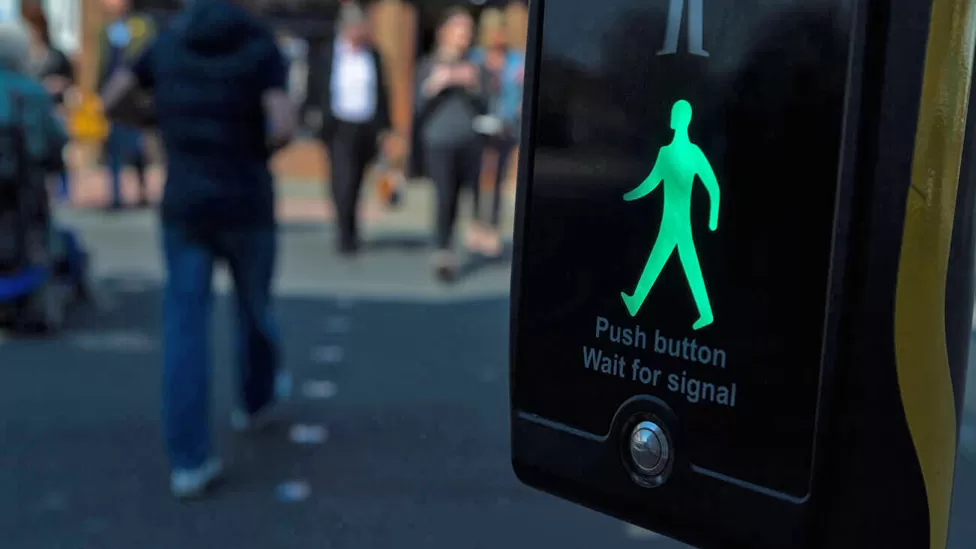The green man could stay on longer at pedestrian crossings to give people more time to cross the road in England. Transport officials are considering a change that would mean people have around seven rather than six seconds to cross the typical road. The guidance for local councils is meant to help people with disabilities and older people. Campaigners welcomed the idea, saying millions of people currently struggled to cross when the green man was lit. Current UK-wide guidance for traffic engineers assumes an average walking speed of 1.2 metres per second – a figure first calculated in the 1950s. It was updated in 2019 to specify that councils could reduce this to one metre per second, either on a “site‑by‑site basis or as an area‑wide policy”.

Now Active Travel England (ATE), an executive agency of the transport department, is considering adopting one metre per second as its standard recommendation for councils in England. The change will be subject to consultation from interested parties. If approved, it will be included in new advice expected to be issued to English councils before the end of the year. Local authorities are in charge of traffic management, but Active Travel England factors in adherence to its recommendations when allocating funding for schemes to boost walking and cycling. Research published by University College London in 2012 found that 76% of men and 85% of women had a walking speed lower than the 1.2 metres per second standard.
The average walking speed for men was calculated as 0.9 metres per second, and 0.8 metres per second for women. An ATE spokesperson said making crossing times “inclusive” was a big part of its plans to boost the number of people making short journeys on foot. “Crossing times can be a challenge, particularly for elderly and disabled people, and a bad experience is enough to put someone off doing it,” they added. Living Streets, a charity that promotes everyday walking, welcomed the proposal, saying it recognised walking speeds in the UK’s ageing population. “Millions of older people, disabled people and families with children struggle to cross the road in the time given,” added chief executive Stephen Edwards. “If people don’t feel safe crossing the street, they simply won’t make the journey or will make it in a less sustainable and less healthy way,” he added.
![]()





